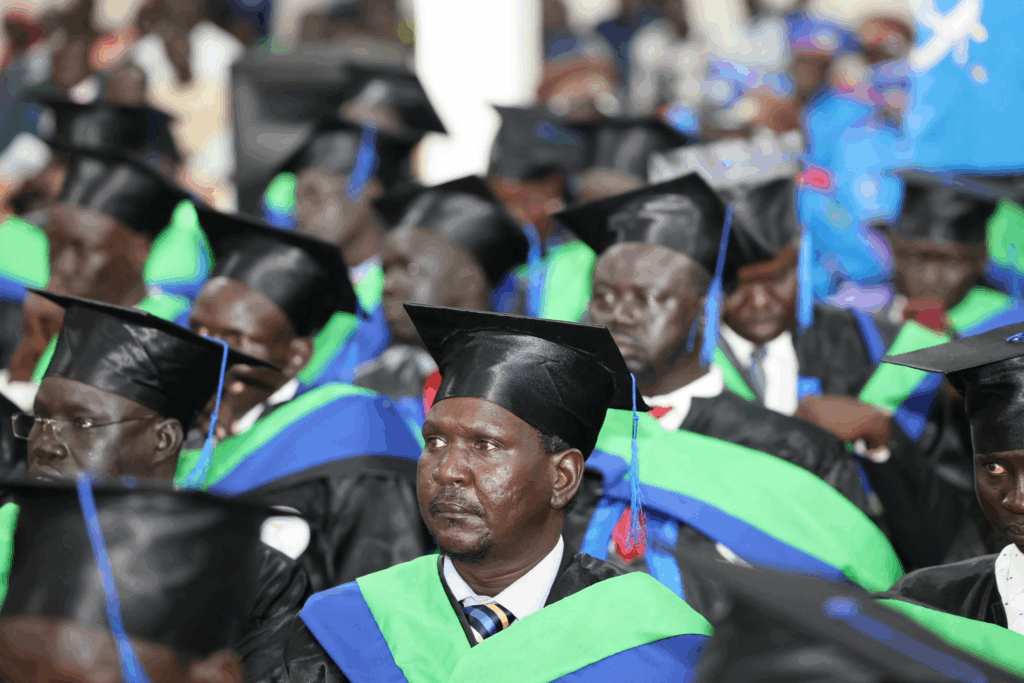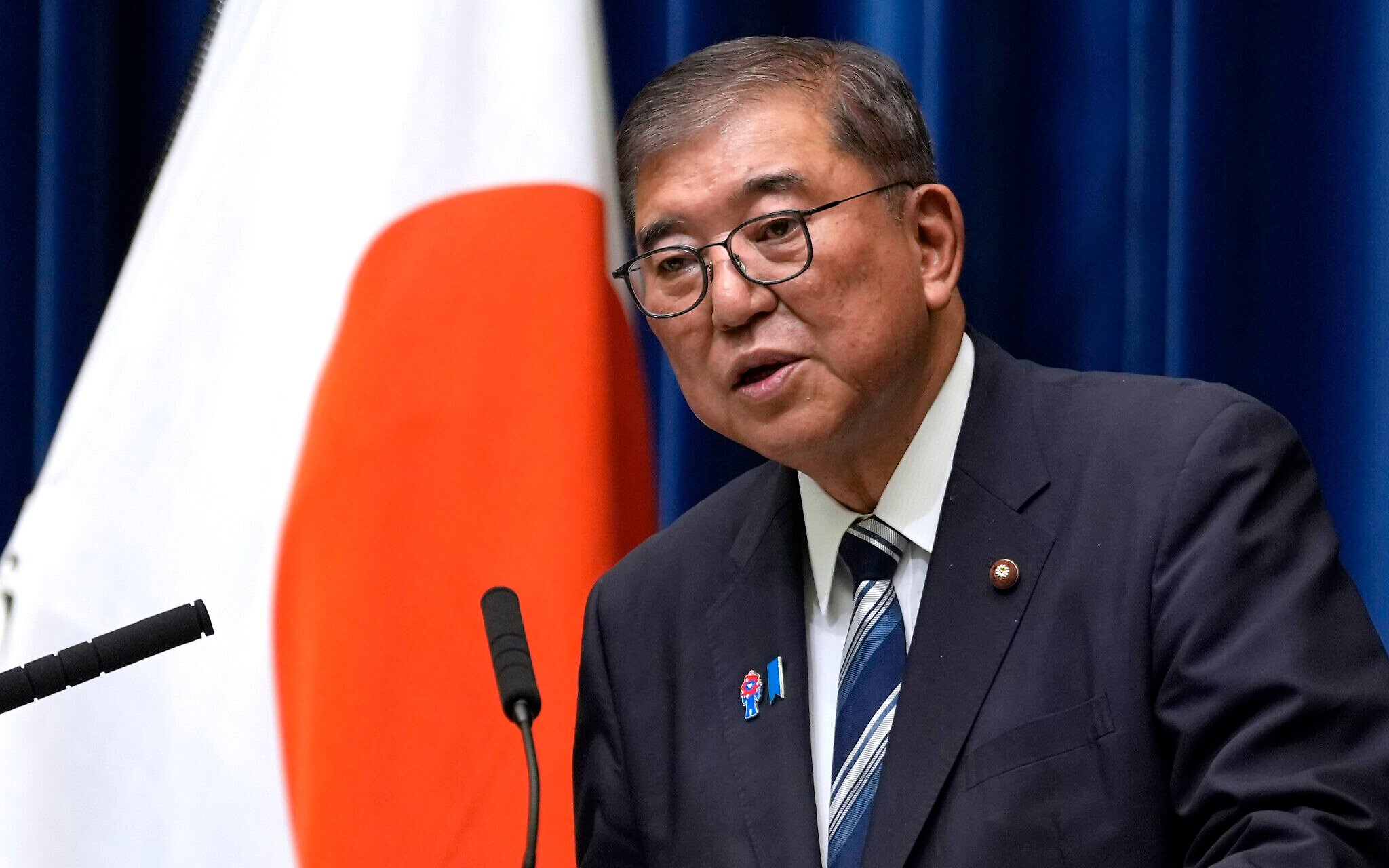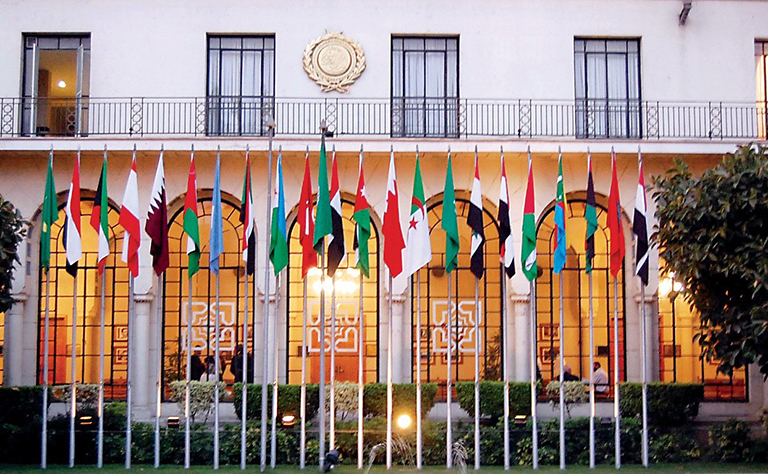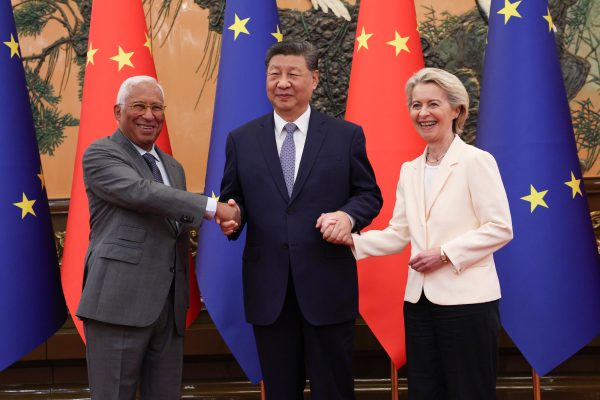By Koang Chang
Copyright eyeradio

Graduates at the Dr. John Garang Memorial University of Science and Technology’s graduation ceremony on September 16, 2025.
JUBA, South Sudan (Eye Radio) – The Vice Chancellor of Dr John Garang University says his administration will meet with student leaders to decide whether to reopen the institution without waiting for the government to supply meals.
The Dr. John Garang Memorial University of Science and Technology, located in Bor, Jonglei State, has been closed for lectures and other academic activities since the beginning of the year due to a lack of food for students.
According to Professor Abraham Matoch, the company previously supplying meals has stopped due to unpaid arrears.
Speaking to Eye Radio from Bor on Wednesday, September 17, Professor Matoch said he plans to have students sign an undertaking if the university reopens without a meal plan.
“I cannot open the university without food when it is the policy of the government,” he stated. “Unless I seek approval from the government, if the students can feed themselves, I have no problem. But I’ve already put down the program.”
He added that reopening without a meal plan would make the university inaccessible to many students.
“I’m going to meet with the student leadership to see their views. Opening the university without food means the university is localized. It will be a state university only,” he said.
“Only those in Jonglei State will be the people who come to the university. Others from Torit, or Greater Bahr-el Ghazal, Western Equatoria and all these things may not be coming to the university because they will not get fed.”
“If they sign an undertaking that all of them are ready to come to the university without food, I have no problem, and I cannot break the rule on my own. So that’s why the university remains closed for the rest of the time for the undergraduates.”
Professor Matoch also urged families and society to move away from depending heavily on government support to improve public learning institutions.
“To have students in the universities without feeding is the right thing. But people have been used to doing things and getting things for free. And people have been used to seeing that the government should feed everybody, which is not true,” he said.
“In East Africa, all the students feed on their own. Whether there is a cafeteria inside the university or not, they have to get their food wherever it is because the market is around.”
He also pointed out that students in other countries pay significant tuition fees.
“The students are not even accommodated. If they are to be accommodated, the hostels are actually provided by the university as an income-generating activity. They call for them and they pay a good amount of tuition fees. Now, with a very small tuition fee you impose, people will react and say no,” he said.
“The concept of doing things, the concept of the families and the concept of the society to contribute towards improvement of the government is not in our minds. That is a problem.”



